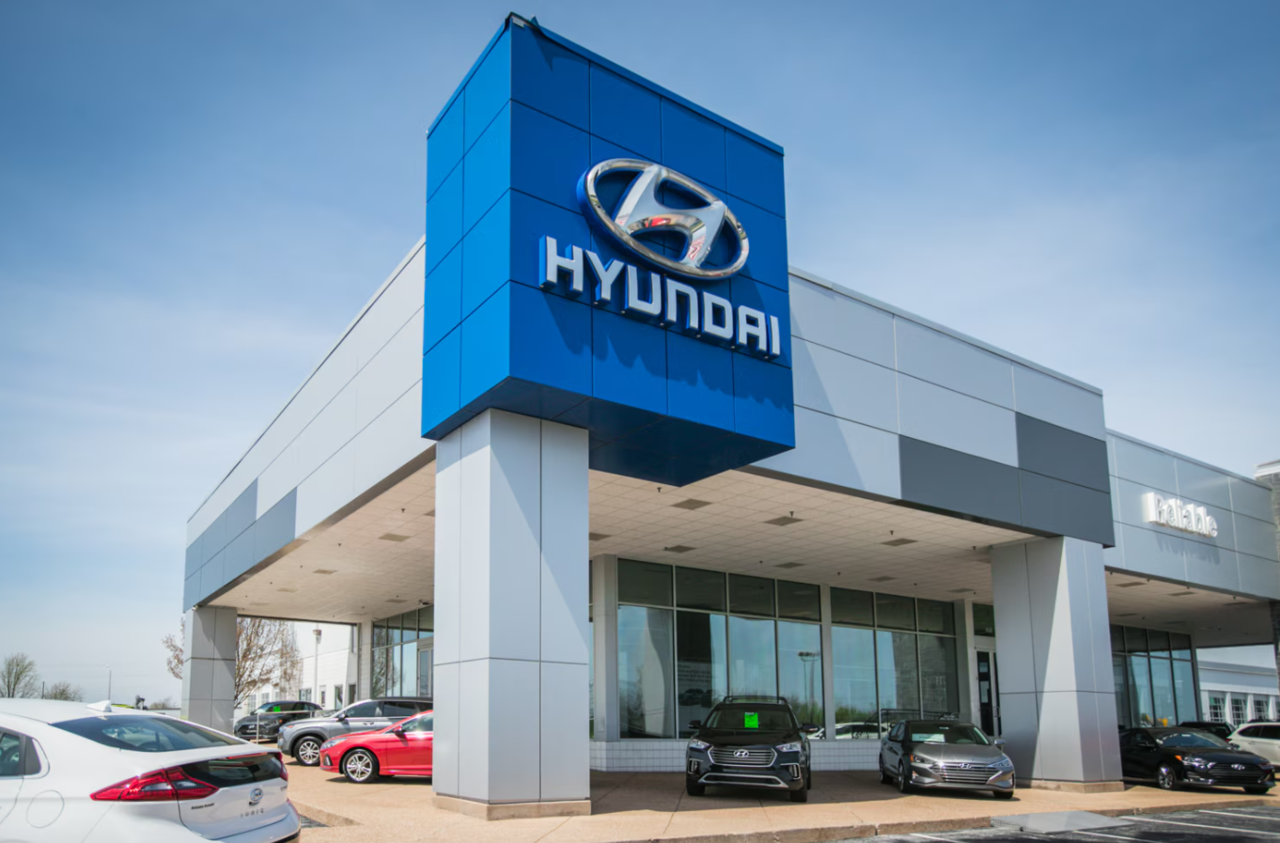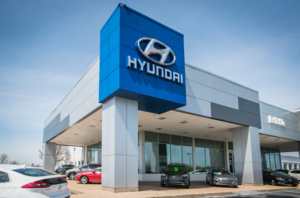Hybrid vehicles, pre-tariff inventory strategy driving Korean automakers’ growth
 A Hyundai Motor dealership in Springfield, Missouri (Screen capture from Reliable Hyundai website)
A Hyundai Motor dealership in Springfield, Missouri (Screen capture from Reliable Hyundai website) Hyundai Motor and Kia achieved a combined 11 percent market share in the United States in the first five months of this year as the Korean automakers rolled out hybrid vehicles ahead of new US tariffs and carried out timely promotions.
According to market analysis firm Wards Intelligence on Sunday, Hyundai Motor and Kia sold a total of 752,778 vehicles in the January-to-May period this year, up 0.5 percentage point from the same period last year. Hyundai sold 400,116 units while Kia sold 352,662 units.
The Korean automakers’ combined market share in the US has continuously grown this year, from a 10.5 percent market share in January, when they sold 116,362 cars. Their monthly market share also showed a steady upward trend without a single month of decline during the first five months of the year.
Industry watchers attribute the strong performance to Hyundai and Kia’s proactive response to the shifting trade landscape ahead of the Trump administration’s planned 25 percent tariff on auto imports. The Korean automakers appear to have capitalized on US consumers hurrying to buy cars in March and April in advance of an expected rise in car prices due to the tariffs.
Hyundai and Kia sold 162,615 cars in April, up 16.3 percent on-year — their best April figure on record — outpacing the industry’s 11.1 percent year-on-year increase that month. Sales of hybrid vehicles in April soared 65.8 percent on-year to 26,134.
Despite a steep decline in the US auto market in May, the Korean automakers sold 170,251 units in that month for a year-on-year increase of 6.7 percent, more than doubling the overall auto industry’s sales growth of 2.5 percent.
“(Hyundai and Kia) preemptively moved to stockpile inventory before the tariffs went into effect in April to meet the increase in demand from US customers,” said an auto industry official.
“They also set up an expanded lineup of hybrid vehicles — which have been gaining popularity amid slowing momentum in the transition to electric vehicles — to gain a competitive edge in the US market.”
The outlook for the second half of this year, however, remains grim for the Korean automakers as they run out of pre-tariff inventory and face pressure to increase their prices.
The Korean government has begun discussing trade policies with the US to minimize damage to Korea’s export-heavy industries, but US President Donald Trump mentioned earlier this month that the US may hike auto tariffs in the “not too distant future.”
hwkan@heraldcorp.com
